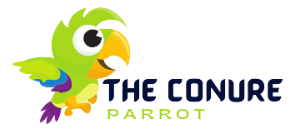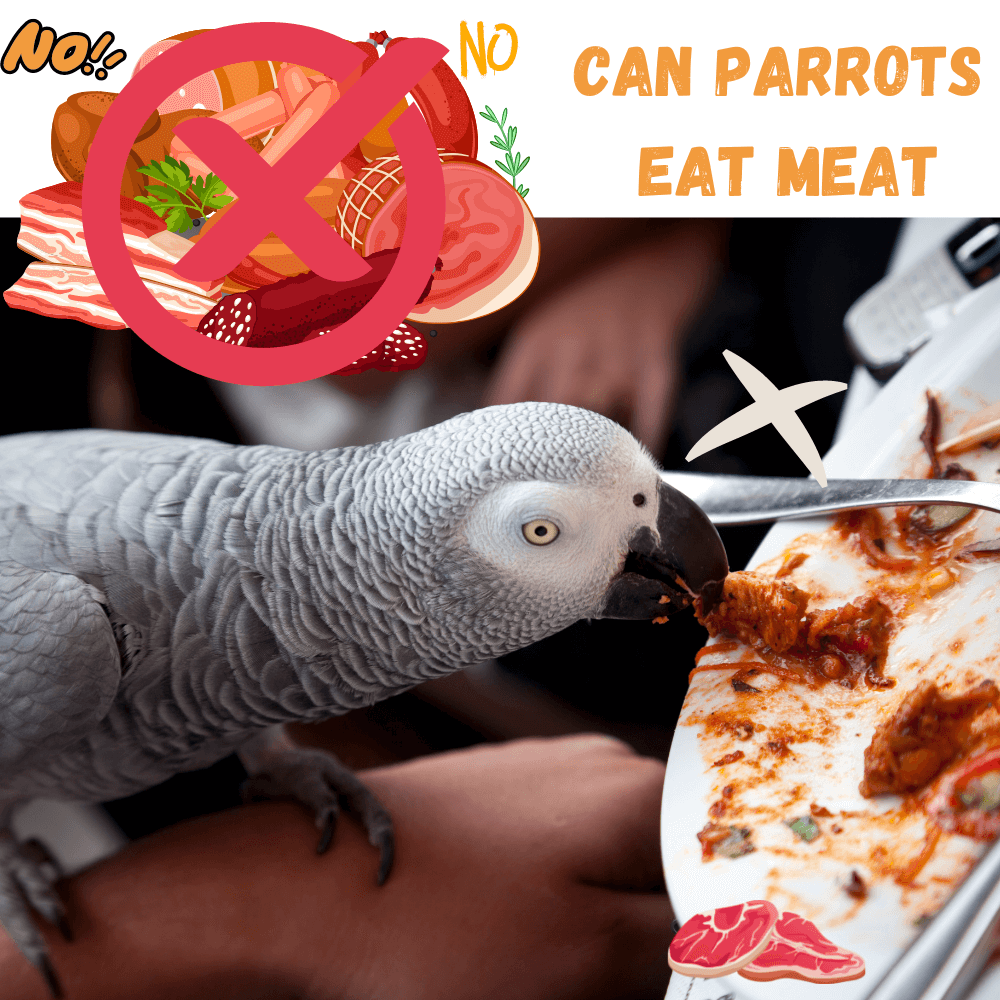Can parrots eat meat: Parrots should not eat meat or foods of animal origin such as milk, as in the wild they get protein from plant sources.
Many bird owners ask themselves the following question: Can parrots eat meat? Although these animals are omnivores, their digestive systems are not very good at processing animal foods.
So the answer to this question is no. The proteins that parrots need are obtained from plant foods (e.g. legumes), so they do not have to rely on preying on other creatures.
Since parrots are animals that have not undergone a domestication process, you must mimic their living conditions and diet in the wild as closely as possible.
In the following, you will find out what parrots need to consider when eating and why they should not eat meat. Read on!
Why can’t parrots eat meat?
As we said in the introduction to this article, parrots are omnivorous. In the wild, however, they are not hunters but opportunists: they spend most of their day foraging in the branches of trees, where they are safe from predators. If they eat animal protein, it’s from an unsuspecting insect or another invertebrate.
Therefore, the consumption of meat (as well as other products of animal origin) can damage the organism of parrots. Some of the dangers of this practice are as follows:
- Meat contains too much-saturated fat and cholesterol for a parrot. Heart and liver problems (such as fatty liver) can occur if the animal is given this ingredient.
- An excess of protein in the parrot’s diet can lead to kidney problems.
- Raw meat can contain a number of internal pathogens and parasites such as Toxoplasma gondii.
Feeding wild parrots
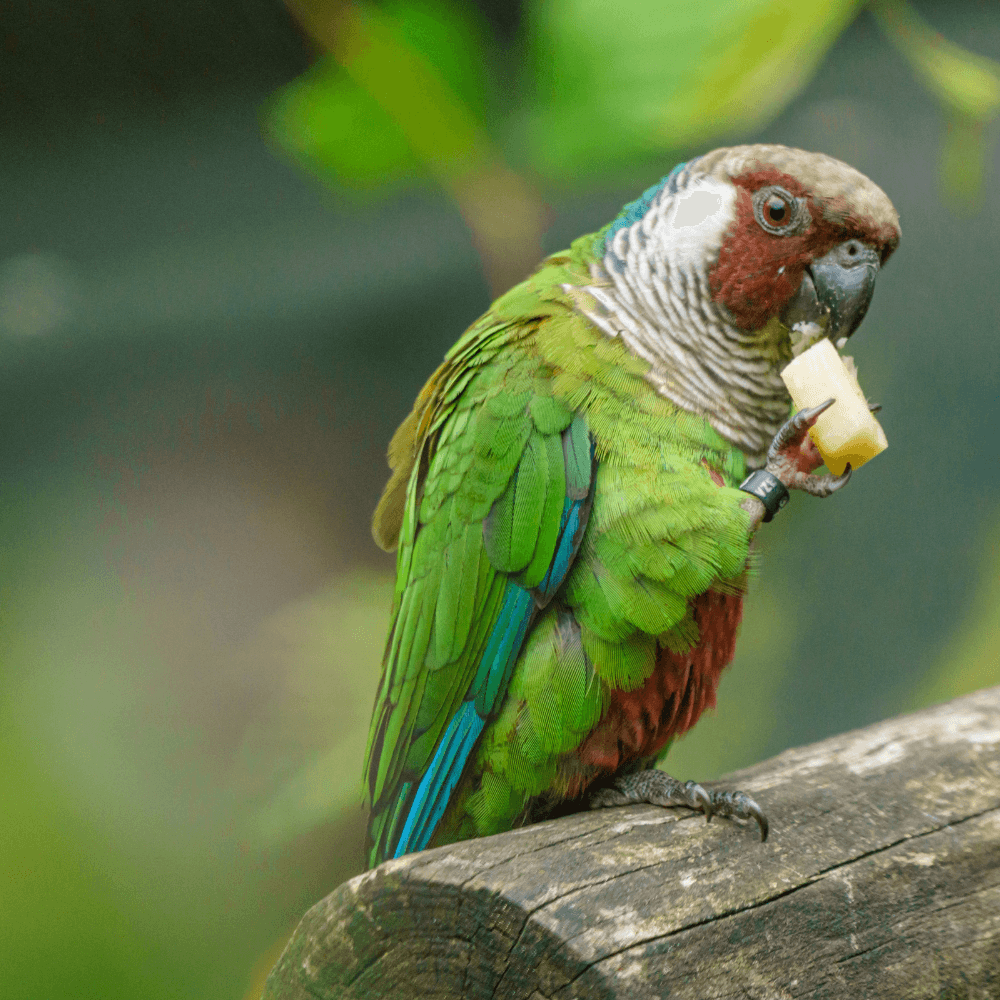
The opportunistic habits of wild exotic birds make their diet heavily dependent on the availability of food in their environment. Therefore, their diet is not fixed; and while this is not normal, nutritional imbalances can also occur in nature.
The list of the most common foods eaten by wild parrots is as follows:
- tree fruits
- berries and nuts
- leaves of trees and shrubs
- Seeds found on the ground
- tree bark
- Occasionally a small insect within reach
As you can see, in the wild, parrots don’t need to eat meat to stay healthy. It’s exactly the same in captivity, but nutritional imbalances can occur if their natural diet is not properly “mimicked”.
With that in mind, here are some general guidelines for feeding parrots. It is important to realize that each bird’s specific diet depends on the species, health status and individual. Therefore, it is best to consult professionals.
How to feed parrots?
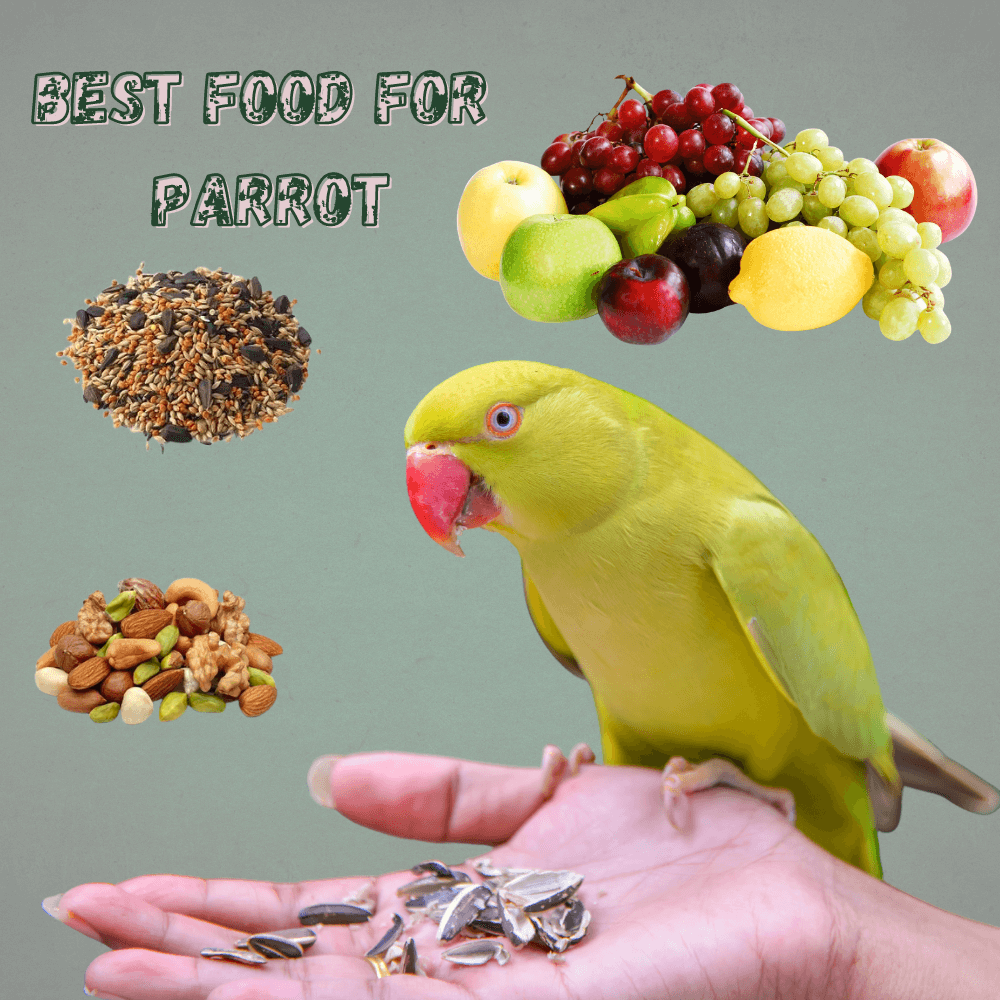
Feeding a house parrot is important to keep health problems at bay. It’s not just about diet, these birds are very picky about food and will always choose what they like best. The choice of food is also a question of upbringing.
There are two ways to feed pet parrots without eating meat: a homemade diet and extruded food. In the following, we explain in detail what the two nutritional variants consist of.
What do parrots eat
This system aims to mimic how the parrot is fed in the wild so that it gets all the nutrients it needs even if it doesn’t eat the same food it would get in its natural environment. This diet consists of the following:
- Seed Mix: This should make up about 60% of the total food the bird eats at the end of the day. A good mix will contain at least 10-12 different seeds, with sunflower seeds being reserved as a treat. Sunflower seeds can cause parrots to itch, which could result in the bird attacking its feathers.
- Fruit, Legumes, and Vegetables: The remaining 40% of the menu consists of fruit salad, soaked legumes and fresh vegetables. Find out which vegetables your bird can and cannot eat, as some of them can be poisonous, such as avocados.
- Nuts: They provide minerals and vegetable fats that are beneficial to your parrot, but they should only be given as a treat and only occasionally.
It is best to split this diet into two portions, one in the morning and one in the afternoon. This way, you mimic the habits of parrots in the wild, which typically feed in the morning and before dark.
Parrot Pellets food
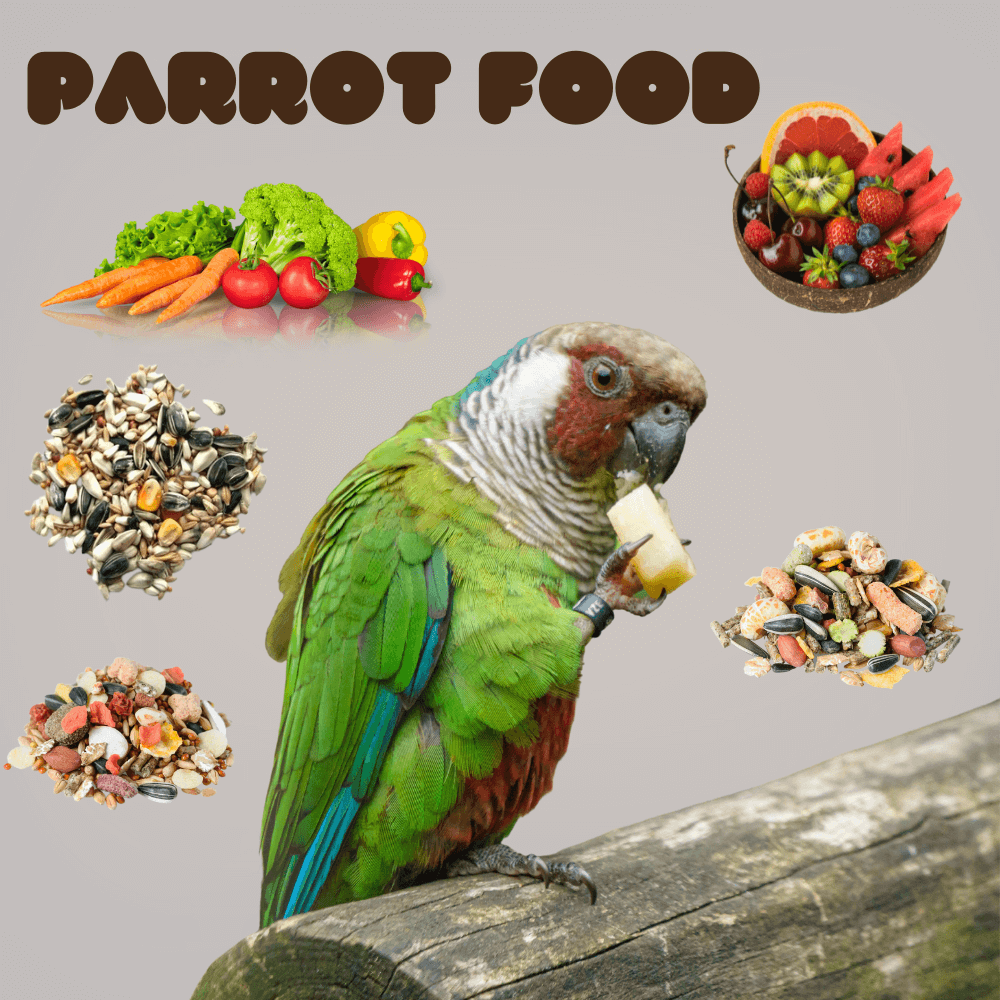
Another way to provide your pet with a balanced diet is with extruded food. These are sold in the form of pellets and contain all the nutrients the bird needs.
Extruded food is particularly suitable for very fussy birds when it comes to feeding, but some of them take time to get used to and initially refuse it. In addition, it is more convenient for the owner to control the feeding of the parrot.
While there are commercial moves to present extruded food as the only food your pet needs, it’s good to supplement the food with fruits, vegetables, and legumes. Vitamin supplements can be given during the molting or breeding season if the bird needs them.
Feeding the animals that live with us (not just parrots) is important to prevent health problems before they develop and save on vet visits. Special care should be taken with exotic species, as the birds are not designed for life in captivity and can suffer from imbalances much more easily.
